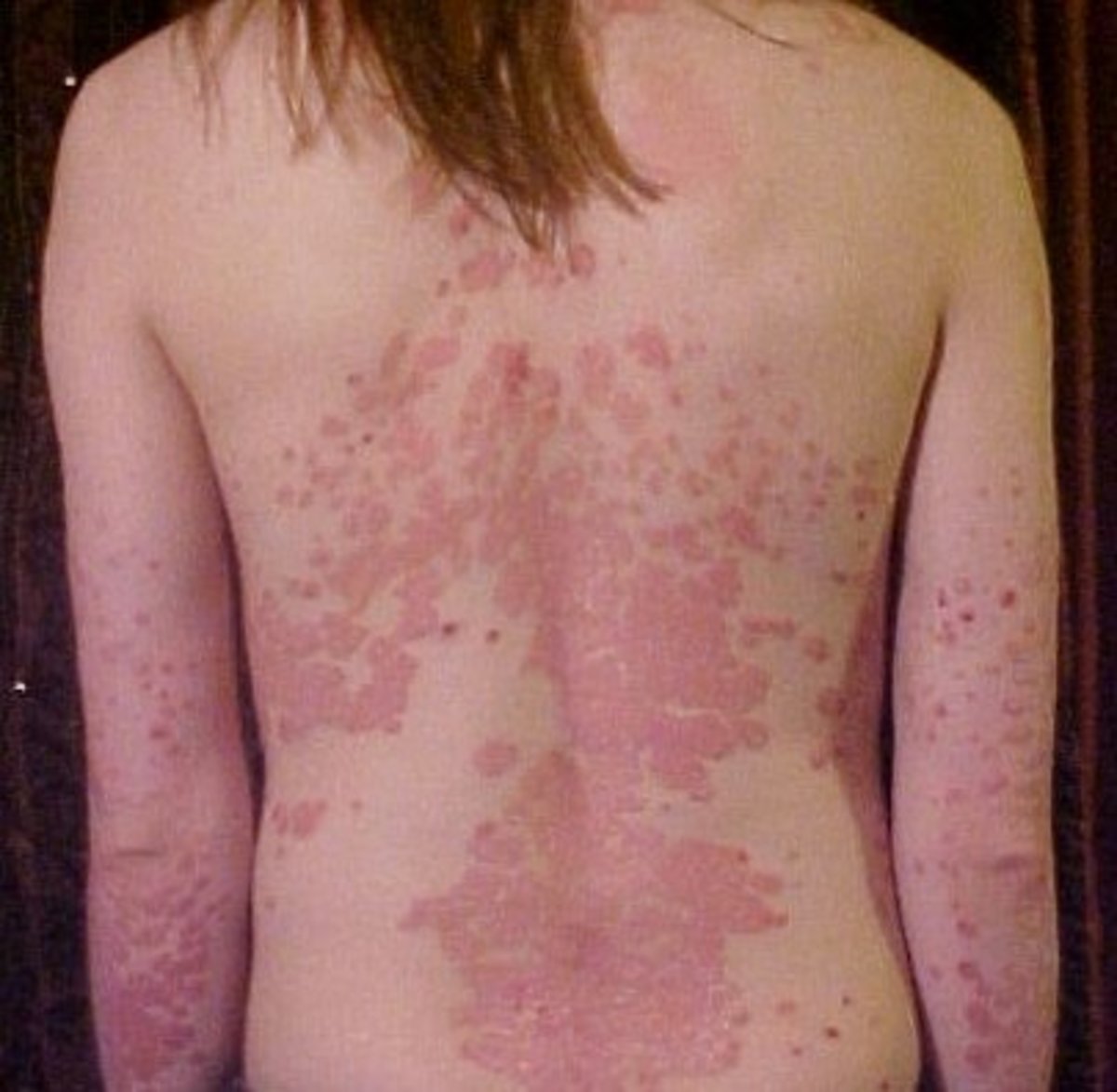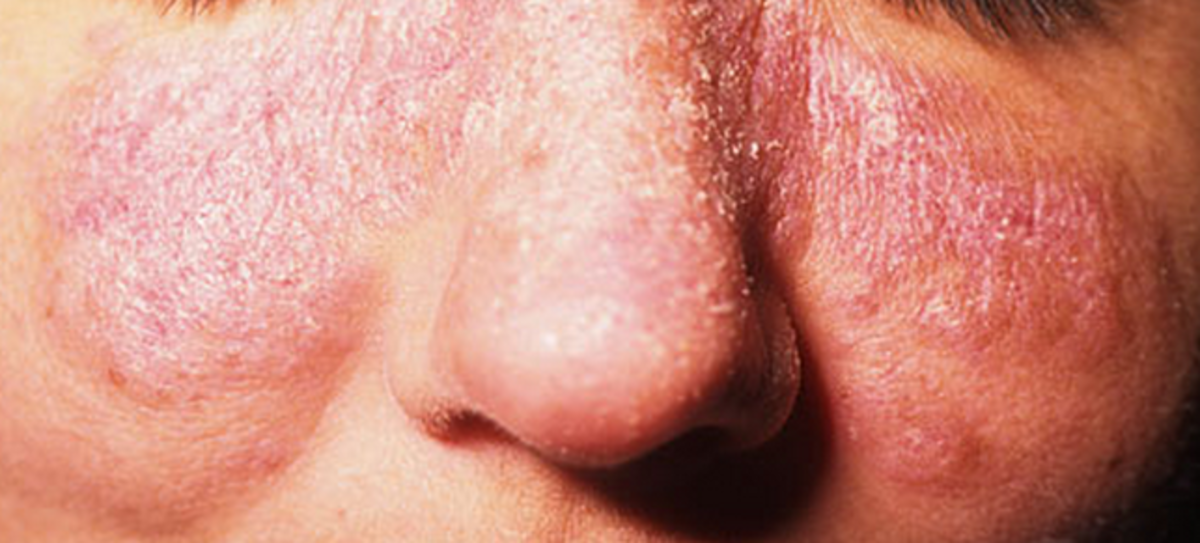- HubPages»
- Health»
- Diseases, Disorders & Conditions»
- Skin Diseases & Conditions
Dog Skin Infections
Canine Skin Disorders
There are a number of different reasons why dogs develop skin disorders. Some of these problems are caused by environmental factors, while others are due to bacterial, fungal or parasitic infections. A veterinarian can diagnose the condition in your dog and recommend some treatment options.
Allergies
When humans have allergies, we usually experience sneezing, runny nose, coughing and itching. When dogs have allergies it usually affects their skin. They show that they are having allergy problems by constantly scratching, chewing and biting at various areas of their bodies. Like humans, dogs can develop allergies to pollens and pollutants in the environment. Sometimes they are allergic to ingredients in their food or to a certain kind of laundry detergent. Many dogs are also allergic to flea bites. The best way to treat an allergy is to find out what the dog is allergic to and limit its exposure. Since that isn't always possible, a veterinarian may prescribe antihistamines or corticosteroids. Omega-3 fatty acid supplements also help lessen the symptoms of allergies in some dogs.
Malassezia Yeast Infections
Malassezia pachydermatitis is a type of yeast bacteria. Dogs normally have small amounts of the bacteria on their skin and it is usually harmless, but sometimes the yeast multiplies rapidly and causes skin infections. This often happens if the dog has an underlying health condition such as allergies or infection. Malassezia causes intense itching. The dog's skin becomes crusty, red and irritated, and it often has an unpleasant oily odor. Dogs make this condition even worse by constantly scratching. Bacteria enters the body through broken skin and causes additional infections. A veterinarian will perform a complete examination of your dog and ask you questions about his health to try to pinpoint the problem. If the yeast infection is caused by another problem, the veterinarian will need to address that issue as well or the yeast will keep coming back. Yeast infections are treated with prescription anti-fungal medications.
Red Mange
Red (demodex) mange is caused by the demodex mite. This condition is transferred from mothers to their puppies at birth. All dogs normally carry this mite on their skin and it rarely causes problems, but mites can breed out of control in dogs that have weak or underdeveloped immune systems. The disease is most common in puppies, many of whom outgrow the infection as their immune system matures. Demodex mange often appears as small, scaly patches of hair loss, but sometimes it affects the entire body. The medication is treated with Ivermectin. Herding breeds such as collies and shepherds cannot use this medication, however, so mite-killing dips such as Mitaban are used to treat mange in these cases.
Scabies
Scabies, or sarcoptic mange, is caused by the Sarcoptes scabiei mite. This parasite burrows under the dog's skin to lay its eggs and spends most of its life cycle tunneling under the surface, only coming to the top to breed. Scabies is intensely and painfully itchy. It usually starts in areas where the dog has little hair, such as on the elbows and hocks, and spreads across the body as the infection worsens. Infected dogs develop pimple-like lesions that rupture and ooze yellowish fluid or pus, causing yellow crusts to form on the skin. Sarcoptic mange is also accompanied by hair loss and open wounds. Scabies is treated with Ivermectin, Selamectin, and Mitaban dips. Dogs that are sensitive to Ivermectin are sometimes prescribed milbemycin oxime instead.
Seborrhea
Seborrhea is a skin condition where the skin cells grow faster than the body's ability to slough off the old dead cells, leaving the animal with a flaky, scaly buildup much like dandruff. Oily seborrhea is characterized by greasy, oily scales and a foul odor, whereas the primary symptom of dry seborrhea is dry and flaky skin. Sometimes seborrhea is caused by another infection or an imbalance in the body such as a hormone disorder, but other times it is genetic, passed from the sire or dam to the puppy. Medicated shampoos are used to soothe the irritation. Omega-3 fatty acid supplements also help the body's skin cells to function normally.
Pyoderma
Pyoderma is a bacterial infection of the skin. This condition is usually caused by the staphylococcus bacteria. Dogs with pyoderma develop yellow pustules that itch and rupture. The skin becomes dry and crusty as the condition worsens. Sometimes the skin also reddens and ulcers may form. This disorder is usually limited to the torso and chin areas. It is treated with antiseptic shampoos and antibiotics.
Conclusion
Most skin conditions are treatable. Unfortunately, some dogs are born with a genetic susceptibility to certain kinds of skin diseases or infections, and many of these disorders require lifelong treatment. It is important to consult a veterinarian before attempting to diagnose or treat a skin disorder, because many infections have generalized symptoms and often resemble other diseases. A veterinarian can perform specialized tests and blood work to find out the real cause and prescribe an effective treatment.





